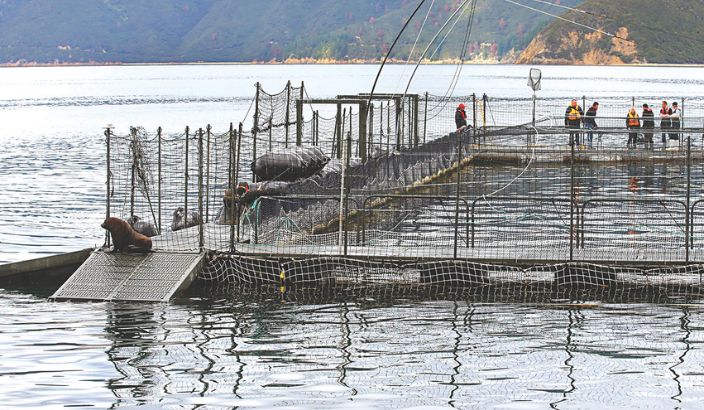Council works through extending all marine farm consents


There are more than 1000 marine farms in Marlborough that need their consents updated. <em>Photo: Marlborough Express.</em>
Extending all marine farm consents might seem simple on the surface, but when there are more than 1000 across Marlborough, the process is not actually straightforward, council has heard.
The Government passed the Resource Management (Extended Duration of Coastal Permits for Marine Farms) Amendment Bill in August, which extended all coastal permits by 20 years, but not beyond 2050.
But actually extending each permit is “not straightforward”, Peter Johnson from the council’s resource consents team said. Peter last week spoke to the council’s environment and planning committee about the implementation of the changes last week. “In brief terms the implementation is not straightforward for this council, and that’s simply because we’ve got around 1000 coastal permits that are affected,” he said.
“Unfortunately it’s not a simple matter of clicking select all and then typing the new expiry date. Each individual farm site needs to be looked at, figure out what permits apply to it and then add 20 years or through to 2050, whichever is the lesser.We’ve been dealing with marine farmers for the last couple of months and generally they’ve been very responsive.”
At the time of Peter’s presentation to the committee only one marine farm had not responded to the council. “Other than that we have heard from all the consent holders that we needed to. So we are just in the process now of going through and updating the permits,” Peter said.
The council had to identify all coastal permits for each marine farm site across the district. They then had to update each decision document with a new coversheet which had a record of the extended expiry date for each consent. A copy of an updated decision document was then sent to the relevant consent holder and the council’s databases were updated to extend the consent expiry dates. The council had until early March 2025 to update every existing coastal permit.
The new rules were said to benefit the industry, its exports and the economy, Oceans and Fisheries Minister Shane Jones said in August. Shane said he was committed to ensuring the aquaculture industry was not “held back by costly and needless red tape”. Without the law change, an estimated $6 million would have been spent in 2024 by 200 marine farms on re-consenting.
“That money can now be invested by businesses on useful things like identifying new practices and technology to help lift productivity and sustainability in a sector that is going to help drive export growth in the coming years,” Shane said. “High-value overseas markets and consumers want more of our great seafood and there is enormous potential to turn our shellfish and salmon farming industries into multibillion-dollar-a-year export earners.”
At the council meeting at the end of November, environment and planning committee chairperson Gerald Hope asked if the extensions actually benefited the industry. Peter said the vast majority of marine farmers in Marlborough already had permits through to 2044. “The difference between 2044 and 2050 is only six years – for most marine farmers [it’s] not a huge gain, I don’t think,” he said.
The “real winners” were the 17 marine farms identified as being on inappropriate sites through the Proposed Marlborough Environment Plan, Peter said. A variation to the plan was agreed in May last year, which set out what areas were appropriate for marine farming. “They’ve [inappropriate sites] got another 20 years on their permits rather than being faced with having to relocate, or give up their space,” he said.
Marlborough Sounds ward councillor Barbara Faulls asked for clarification about whether the council still had the power to review the conditions of consent for those sites. Peter said they could, but the consent could not be taken away from them. “We’d only be looking at structure exclusion zones, if there was valuable habitat beneath those sites. That assessment is yet to be made,” he said.

